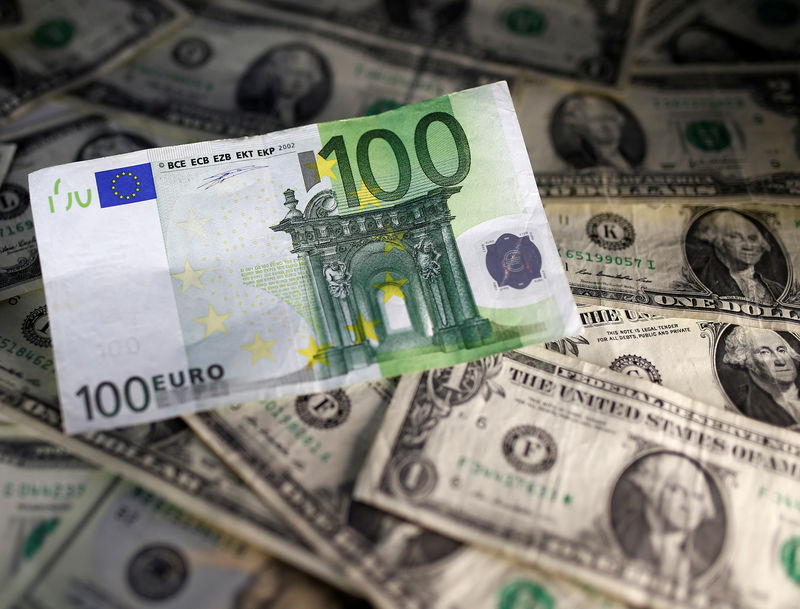Dollar Edges Lower; Euro Set For Strong Week
2022.07.22 10:33

By Peter Nurse
Investing.com – The U.S. dollar edged lower Friday, while the euro gave back a lot of the knee-jerk gains that followed the European Central Bank’s Thursday decision to raise borrowing costs by more than expected.
At 3:05 AM ET (0705 GMT), the Dollar Index, which tracks the greenback against a basket of six other currencies, traded 0.1% lower to 106.660, on course for a fall of over 1% this week, its first losing week in four.
The dollar has been weighed down this week by expectations that the Federal Reserve will lift interest rates next week by less than the 100 basis points that seemed likely after the release of the red-hot June consumer inflation data.
Data released Thursday showed a slump in factory activity and a rise in applications for unemployment benefits, signs that the economy is already feeling the effects of aggressive Federal Reserve policy tightening, potentially causing the central bank to rein in its tightening plans in the future.
The star currency of the week has been the euro, which is headed for its best week since May despite handing back some of its gains during Friday’s session.
EUR/USD fell 0.2% to 1.0204, giving back a little of the previous session’s 0.5% advance, but remained on course for a 1% weekly rally after the European Central Bank raised interest rates more than expected, hiking by 50 basis points even after policymakers had guided towards a 25 basis point hike at the June meeting.
The central bank also announced the creation of a new tool, the Transmission Protection Instrument, aimed at taming peripheral nation bond yields, but was short on specifics.
“This decision shows that the hawks must have got cold feet, fearing that the promised higher-than-25bp rate hike in September would be washed away by the looming recession,” said analysts at ING, in a note. “The agreement on a TPI had to be paid for by the doves with a stronger rate hike.”
The single currency had also been boosted Thursday by the news that Russia restarted sending gas through its biggest pipeline to Europe after a 10-day maintenance period, allaying fears that Moscow could continue withholding gas as a political point as its war in Ukraine continues.
GBP/USD fell 0.1% to 1.1983 after U.K. retail sales fell 0.1% in June, a second straight drop after falling 0.8% in May, and were down 5.8% from a year earlier.
However, the monthly decline wasn’t as steep as the 0.3% feared by economists ahead of time, as the Queen’s Platinum Jubilee boosted food and drink sales.
USD/JPY rose 0.2% to 137.70 after the Bank of Japan maintained its ultra-easy monetary policy on Thursday.
AUD/USD fell 0.1% 0.6922, paring a weekly advance to 1.9%, while USD/TRY rose 0.2% to 17.7344, with the lira near the year’s low after Turkey’s central bank maintained interest rates at 14% despite spiraling inflation.








